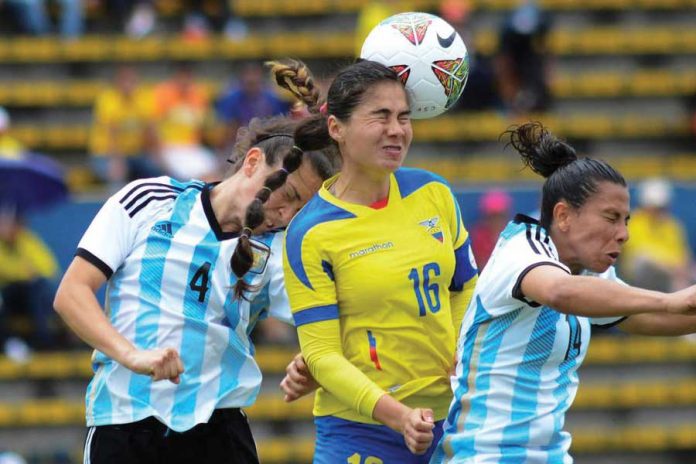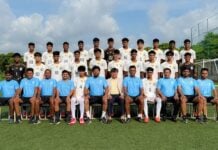When Argentina play at the women’s World Cup in France next month they will cap one of the most remarkable journeys in sport, from a team that did not exist two years ago to one competing on the biggest stage.
In the summer of 2017, the Argentine team had been inactive for two years, hamstrung by an association that showed little interest in arranging games.
After rushing to throw together a team just days ahead of the World Cup qualifiers, they squeaked into the tournament via a playoff and that, said defender Agustina Barroso, is already a victory.
“We had two years when we were at a halt, we weren’t training and we only started again seven days before the start of the Copa America and so our team is very new,” Barroso told Reuters in an interview.
“We had no proper training pitches, when we travelled we slept on a bus rather that in a hotel, it was awful. We weren’t paid. We didn’t have games. We were using ancient training gear. So we started from zero.”
Argentina kick off their World Cup campaign against Japan on June 10, before facing England and Scotland.
Even if their preparation was perfect the Argentines would face a tough task in one of the hardest groups.
The paucity of friendly matches over the last few years means they lack sharpness.
Yet the election of a new president to the Argentine Football Association (AFA) has breathed life into the women’s game there.
They rushed this year to set up games against top class teams and have paid a price, losing all three of their matches and failing to find the net in any of them.
LOST TIME
Barroso is reluctant to blame the last-minute preparations on their poor run but there is little doubt Argentina have to make up for lost time.
“I wouldn’t call it a disadvantage because that would make us out to be victims but we really needed more tournaments and competitive games, as well as more friendlies,” she said.
“If we’d had that then the results in the last few games might be different, we’d be used to facing big teams so we might not start at a disadvantage.
“Processes are important for players to get to know each other, I think that is the problem. They (the other teams) have been working together for years, travelling together, training together and we got together only recently.”
The lack of a professional league – the AFA announced a full-time set up will begin in June – is another problem.
Barroso said the current domestic set up has a handful of teams who are far superior to others, making it hard for the top players to make the step up, both physically and mentally, to international level.
Of the 23 chosen for France, nine are professionals who play in overseas leagues, with the other 14 home-based amateurs.
All 23, however, are delighted at reaching the finals and simply being able to play the sport they love.
They refuse to set goals, given their poor preparation, but they will at least hope to improve on their previous two finals appearances, when they lost every game, scoring just two and conceding 33.
“We know we are not the favourites but we know that people don’t expect anything from us and that is good,” Barroso said. “We know it is going to be difficult. We hope to give people a surprise.”














